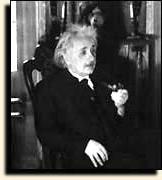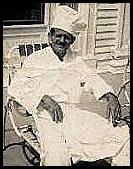Ye Olde Roadkill Inn
 Picture this: Princeton University, the early
1940s, Albert Einstein, Eleanor Roosevelt and it's party time. Al decided to throw a
luncheon (men do lunch, women do luncheon) for Ellie and forty-eight of her little liberal
friends. KFC and Chinese take-out not being available, he was left with three options: the
university's cafeteria, the Nassau Inn, and the Princeton Grill.
Picture this: Princeton University, the early
1940s, Albert Einstein, Eleanor Roosevelt and it's party time. Al decided to throw a
luncheon (men do lunch, women do luncheon) for Ellie and forty-eight of her little liberal
friends. KFC and Chinese take-out not being available, he was left with three options: the
university's cafeteria, the Nassau Inn, and the Princeton Grill.
Although I suspect his preference was the cafeteria, he realized that folks might think that inappropriate for the first lady, or, for that matter, a second lady or even a that woman. With the Princeton Grill considered the best joint in the township, Al went there first.
 Manuel Fernandez had immigrated from Cuba to the states fifteen years earlier.
He had progressed in his profession from dishwasher to executive chef of the Sheraton
Hotel chain and at a number of Delaware Valley hotels and restaurants. The picture was
taken in 1947 at the Corinthian Yacht Club in Cape May.
Manuel Fernandez had immigrated from Cuba to the states fifteen years earlier.
He had progressed in his profession from dishwasher to executive chef of the Sheraton
Hotel chain and at a number of Delaware Valley hotels and restaurants. The picture was
taken in 1947 at the Corinthian Yacht Club in Cape May.
As fate would have it, he was executive chef at the Princeton Grill when Einstein planned to do the lunch thing for Mrs. R. After discussing the alternatives, they settled on the menu: a half chicken, fresh spring peas and potatoes Anna. The main course was proceeded by tomato soup, salad greens and rolls; it concluded with blueberry pie and coffee. Manuel's quote was $3.00, $3.50 with a glass of vintage Chardonnay. Al said, "No wine; water will do. Three dollars seems too high for chicken. I'll get back to you tomorrow." The school cafeteria must have seemed mighty appealing to him.
Al went to the local supermarket and priced chickens. When he learned he could buy a whole chicken for 75 cents, he stormed back to the Princeton Grill and demanded to see the executive chef. "You're trying to cheat me. I can buy a chicken for 75 cents. That makes your cost 37½ cents. How did you come up with $3.00?"
Fernandez handed the physicist a sheet of paper and a pencil. "Add this up. By the way, we can buy a chicken for 50 cents, so start with 25 cents." He continued adding the cost of the soup, the salad, the dressing, rolls, butter, peas, potatoes, blueberries, coffee and flour. Next he factored in the wages of the dish washers, pantry chefs, prep chefs, sous chef, etc. He wasn't finished.
"How much is that? $1.80".
Einstein replied, "$1.78".
"I must of missed something. Yes, add another 2 cents for the eggs and milk in the pie crust. Now, how much is thirty percent of $3.00?" Einstein came up with ninety cents. "Add that in for overhead and you have the price"
"Overhead, what's this overhead thing?"
"You never heard of overhead, I'll tell you about overhead. Ticking off items on his fingers, the chef began: the electric, gas and telephone, kitchen equipment, tables and chairs, repairs, insurance, supplies and linens." He stopped at ten when he ran out of fingers and thumbs.
"Now you know about overhead. Thirty percent of a dinner's price pays the overhead."
But Einstein was still insistent. He smiled, "But that's only $2.70. I was right; you've overcharged me."
Fernandez got a bit irritated. "This isn't a Salvation Army soup kitchen. The 30 cents is the restaurant's profit."
Einstein left without firming up the luncheon. He said he'd go to the Nassau Inn instead. He returned the next day, however, with a check for $147. Manuel told him he was $3.00 short. Einstein insisted he was right because 3 times 49 equals 147. The chef reminded him he had ordered 50 servings.
Einstein said that he had changed his mind. He wasn't going to pay $3.00 to eat a 37½ cent chicken. All he wanted was a glass of water and an ashtray for his pipe. Manuel told him that in that case the price was $148. Einstein asked what was the extra dollar for? The chef replied that it was a service charge for cleaning the glass, the ashtray, providing him with a chair and afterward airing the room out from the pipe. Al was as parsimonious about quality pipe tobacco as he was about chicken dinners.
Fernandez later learned, from a source at the Nassau Inn, that their price had been $3.25. For the rest of his duration at the Princeton Grill, he never remembered Einstein buying another meal there. Eating yes, buying no. He only dined at the Princeton Grill as someone's guest.
It's a good thing Al hadn't asked for a price on Manuel's signature recipe: Maryland crab cakes. He'd have choked.
The famous theoretical physicist forgot to apply the very theory of general relativity, which he had published in 1916. The chef taught the physicist that the cost of a chicken is generally relative, relative to how it's prepared, what goes with it and where you eat it. He learned something else too: not only is there no such thing as a straight line, there's also no such thing as a free lunch.
Back to Top.
Provided by Scott & Eleanor McGonigle